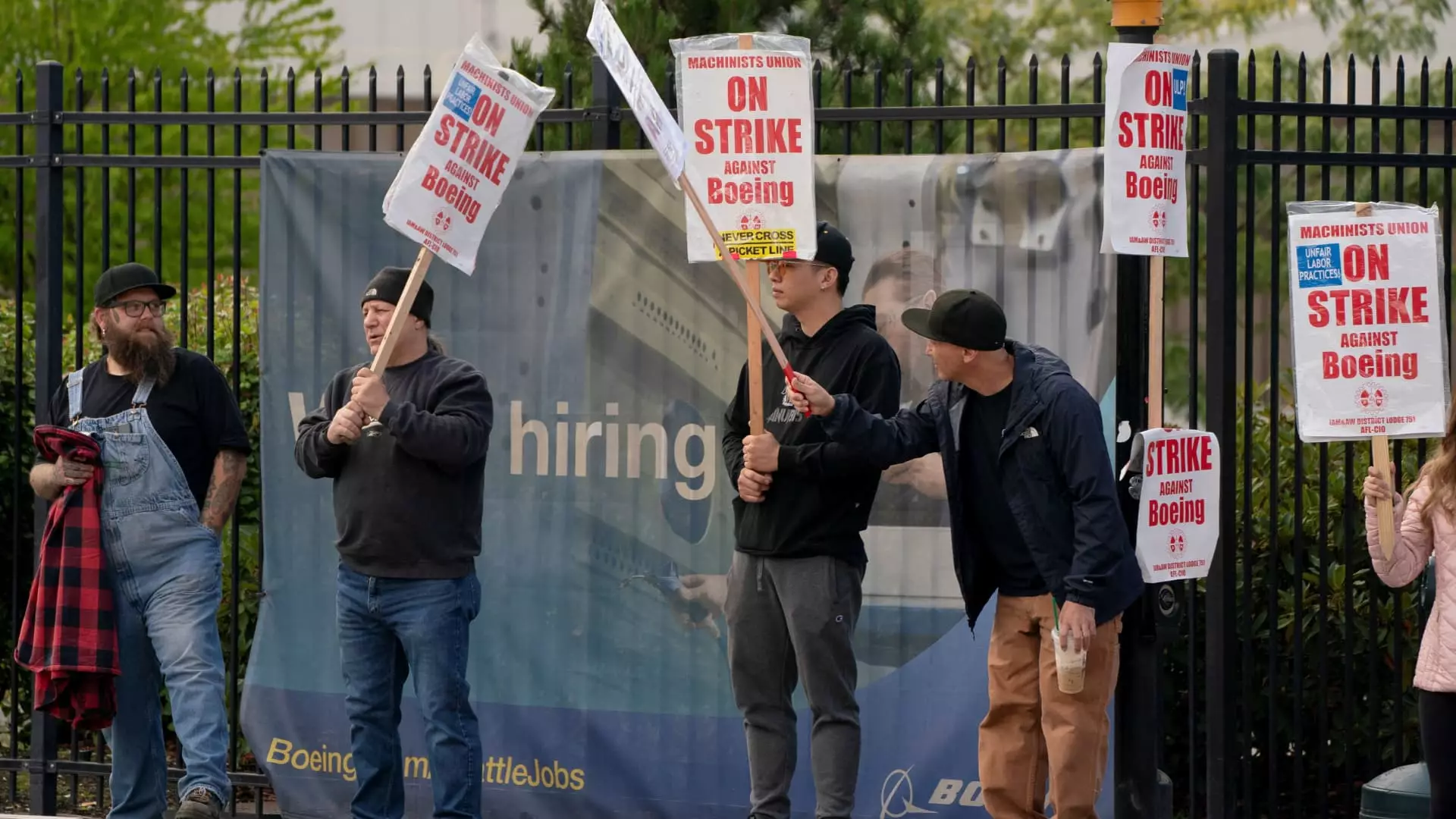Boeing, the aerospace giant, is facing significant challenges as it grapples with a strike involving over 30,000 factory workers, primarily in the Seattle region. In response to the labor unrest that began with workers walking off the job after rejecting a tentative agreement, Boeing has announced a series of strategic cost-cutting measures. These cuts include a hiring freeze, restrictions on nonessential employee travel, and a reduction in supplier expenditures. Chief Financial Officer (CFO) Brian West conveyed these developments in a note to staff, indicating the urgent need to preserve cash flow as the company navigates this tumultuous period.
The strike’s impact is stark, halting much of Boeing’s aircraft production, particularly affecting key models such as the 737 Max, 767, and 777. West stated that there would be “significant reductions” in supplier spending and a halt to most purchase orders. This not only reflects the immediate operational issues Boeing faces but also signals potential repercussions for the numerous suppliers reliant on Boeing’s contracts. Such a cascade of impacts could reverberate through the manufacturing ecosystem that supports the aerospace sector.
The financial ramifications of the strike are uncertain and ultimately contingent on its duration. West emphasized the company’s current precarious situation, indicating that the ongoing strike poses serious risks to Boeing’s recovery efforts. He remarked on the intention to re-engage in bargaining with union representatives to forge a new contract that addresses labor concerns and allows operations to resume. Nonetheless, the threat of temporary furloughs hangs over many employees, signifying the stark reality facing Boeing as it attempts to mitigate financial strain while ensuring operational continuity.
Boeing’s financial health is further under scrutiny from credit rating agencies. Moody’s and Fitch Ratings have indicated that a prolonged labor dispute could lead to a downgrade of Boeing’s credit ratings, potentially inflating borrowing costs for a company that is already contending with substantial debt. West’s assessment highlights that Boeing incurred roughly $8 billion in losses during the first half of the year, attributed to production halts, and safety concerns stemming from incidents such as a serious door-panel malfunction earlier in the year.
As Boeing endeavors to stabilize its operations amidst these challenges, the leadership under new CEO Kelly Ortberg is poised for decisive action. The company must balance the need for immediate cash conservation with long-term strategic goals. The commitment to employee safety and quality customer support remains a priority, suggesting that Boeing is aware of the dual demands of navigating labor issues while maintaining product integrity.
Boeing is at a critical juncture, where the interplay between labor negotiations and fiscal management will dictate its path forward. By fostering dialogue with employees and evaluating financial strategies, Boeing may ultimately emerge from this struggle more resilient, albeit with lessons learned about the complexities of labor relations in a demanding industry. The road ahead is undoubtedly fraught with uncertainties, but Boeing’s response will be pivotal in shaping its future.


Leave a Reply